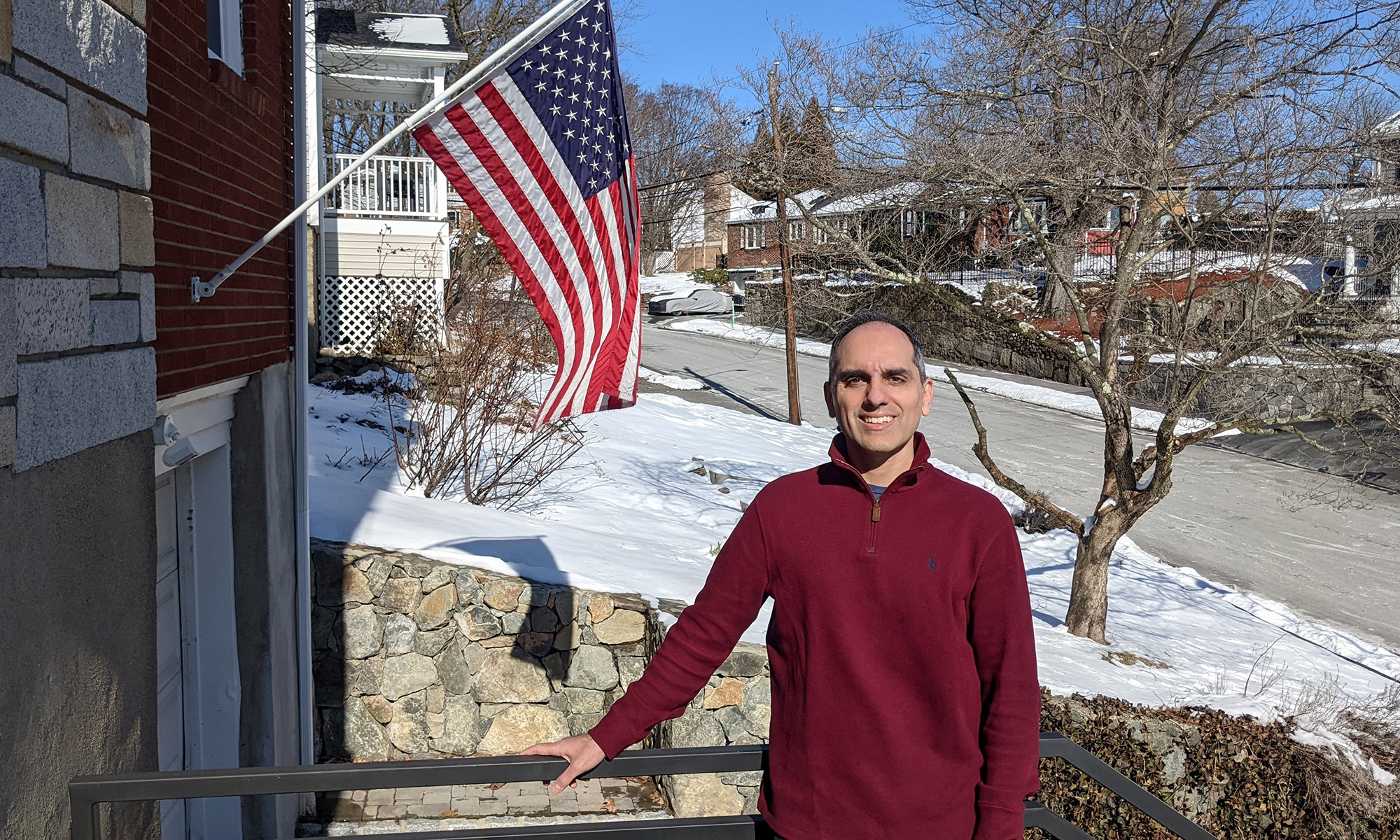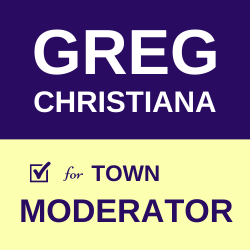How would you increase transparency?
I would give everyone, including Town Meeting Members and the general public, the information they need to assess whether I’m performing well as Moderator. That performance should be assessed in several areas, e.g. from being fair-minded in the discretion that I’d exercise as Moderator when managing the speaking queue, to handling appointments to town committees and applications from candidates seeking to fill those positions. In short, we cannot accurately assess performance if we’re not measuring it.
How would you change the speaking queue at Town Meeting?
I’d make sure that TMMs have the same information I have access to as Moderator, including the order in which members requested to speak. If I exercise discretion in altering the order, I would be clear about it to all members. As it stands now, members have no way of knowing when and how the moderator changes the order of speakers.
What changes would you make to how appointments are made to committees?
The Moderator is responsible for several dozen committee appointments. I would work with the Town staff to create a dashboard on the Town website that shows the Moderator’s appointments across all committees, the vacancies we’re looking to fill, how long those seats have been vacant, how many applications or letters of intent have been filed for those positions, and when decisions are made.
The current practice is to announce via Town notice emails when vacancies open up, but those vacancies can go unfilled for months. The dashboard I mentioned above would be a first step, and I’d work with staff and volunteers to make sure we’re not letting vacancies linger.
What do you mean by inclusion and how would you foster it?
Inclusion to me means creating an environment at Town Meeting, and among candidates for appointed positions, where there’s a level playing field. I’d do this by working with Town staff, especially the Diversity, Equity & Inclusion staff, as well as Envision Arlington, the Civic Engagement Group, and other civic institutions to make sure we’re doing outreach into the community to educate and inform residents about opportunities to serve on town committees. Prior to Town Meeting, I’d expand the new member orientation to strongly encourage study groups among new Town Meeting Members, who would be paired with volunteers who are more experienced members. This program would help acclimate new members to the procedures of Town Meeting and would convey the message that we value and encourage a rich diversity of voices.
Would these changes make Town Meeting longer?
The short answer is no. If anything, we may be able to shorten Town Meeting by collecting data and using it to make informed decisions instead of relying on anecdotal experience. Some metrics that I would work with Town staff to track during the meeting are:
- length of speaking time per speaker
- duration of transition time between speakers, with an eye toward eliminating this “dead time”
- number of articles discussed and voted on each night
- frequency of appearances of a speaker across articles
- number of speakers per article
- number of articles on the consent agenda
- number of articles removed from the consent agenda.
With these and other metrics in hand, we’ll be in a much better position to understand where time is being spent and where the greatest opportunities to save time remain. For instance, if we created an “on-deck area” where the next speaker is queued up and immediately ready to speak, it’s possible that we could cut up to half an hour out of the meeting each night.
Another possible proposal would be to introduce a “termination-of-debate” queue. If members are allowed to signal their intent in this way, the Moderator will have a better sense of when it’s time for members to take a vote on whether to continue or terminate debate. Having more information available — to both the Moderator and the members — can and should be used to improve efficiency of the meeting.
Do Town Moderators have to be attorneys?
No. Legal matters and legal interpretations are the job of Town Counsel, as stated in Town Meeting Time: A Handbook of Parliamentary Law:
The secure moderator is one who regulates the proceedings of the town meeting in conformity with accepted parliamentary procedures, and leaves questions of law to town counsel. … More than ever, it now behooves the moderator to confine his rulings to the conduct of the meeting. In that area the moderator is entirely safe; outside it trouble may lie.” ( Introduction to the Second Edition, page vii)
Where are the responsibilities of the Town Moderator covered?
The Moderator must be knowledgeable about the responsibilities and procedural elements of the role as outlined in the Town Bylaws and in Town Meeting Time: A Handbook of Parliamentary Law. Title I Article 1 of the Town Bylaws covers the responsibilities of the Moderator with respect to Town Meeting, while the Moderator’s numerous appointments to town committees are enumerated throughout the remainder of the Bylaws.
Town Meeting starts at the end of April. Does this allow enough time for a transition to a new moderator?
Yes. Our system is designed to accommodate such transitions, especially if the new Moderator has both studied procedures and served as a Town Meeting Member, which I have. The Moderator does not execute this job alone, either. While the Moderator chairs the meeting, support is provided by town staff, the Town Clerk, and Town Counsel.
Would you start addressing the issues you’ve mentioned right away?
I will address issues over time based on highest priority and least logistical impact on the meeting. For instance, I would begin tracking metrics on speaking time as soon as possible. This is simply gathering information and would not directly affect the meeting while it’s underway. The data we collect would lay the groundwork for having informed discussions about possible changes down the line.
Why do you want to call on speakers by name and how would you do it during an in-person meeting?
In the past, speakers would raise hands, and there were two ways speakers might be called upon: familiar faces would be called by name, while unfamiliar faces would be called descriptively by their appearance or perceived gender. This creates an unnecessary dichotomy in the membership, so I’d prioritize changing this for a more inclusive meeting. If it’s possible for our tech staff and the vendor for our electronic voting clickers to enable the speaking request feature via clickers, then I’d prefer to use that. Otherwise, we can use a simple, inexpensive low-tech approach such as printing unique numbers in large print on 8 ½ by 11 cardstock paper, one for each member, so they can raise their paper to be identified, then later called upon by name.

